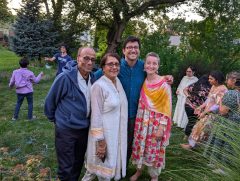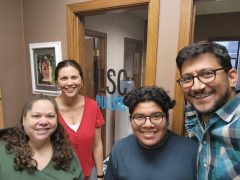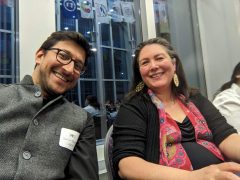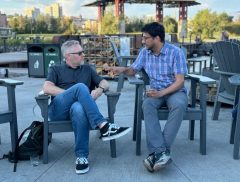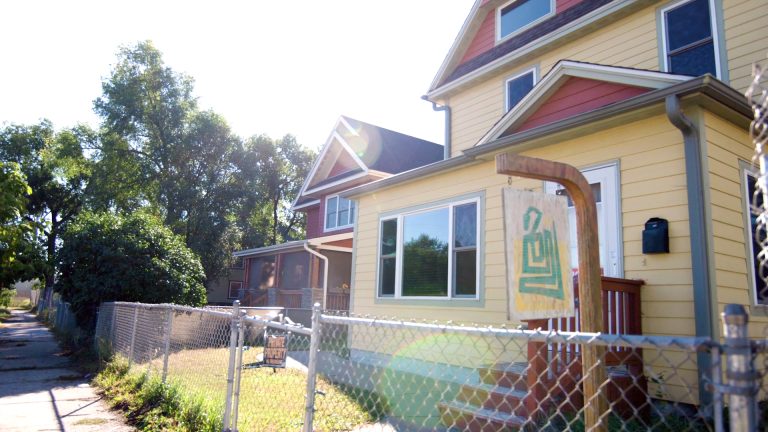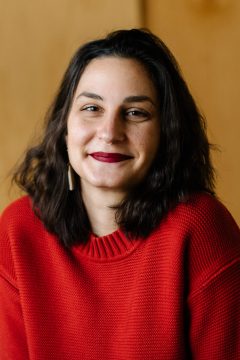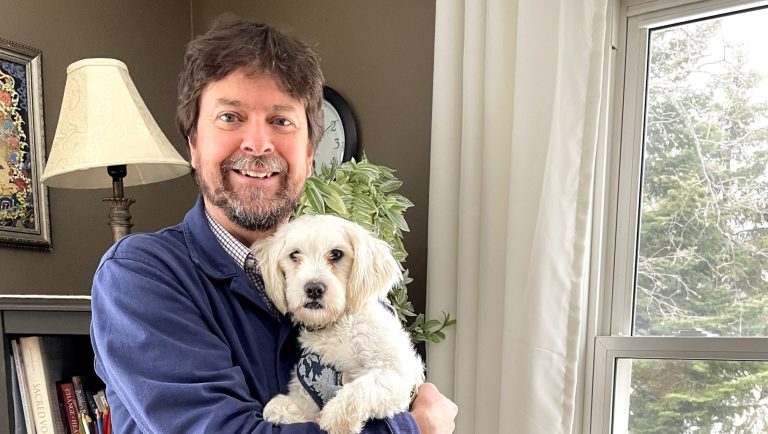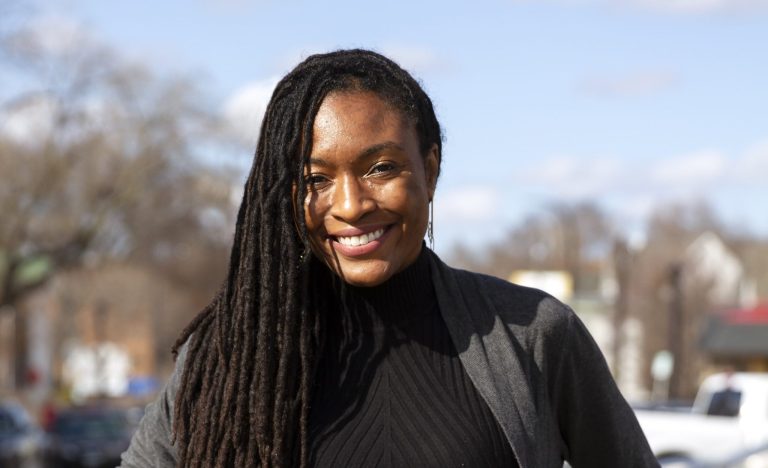Sumair Sheikh is a community organizer, fierce leader for change, and the Executive Director of LISC Duluth
Driven by a commitment to community empowerment and equity, Sumair Sheikh started out as a teacher and community organizer. Throughout his career, Sumair has focused on breaking down race and class barriers and challenging issues of access.
As executive director of LISC Duluth, Sumair leads efforts to improve affordable housing, support small businesses and entrepreneur ecosystems, enhance income and wealth building, and ensure job opportunities. Known for his deep connections and knack for bringing people together, Sumair is inspired by the untapped talent and ambition within communities. His work with the Duluth Police Department’s policy revision team and as a facilitator for Duluth Public Schools shows his dedication to creating fair opportunities for everyone.
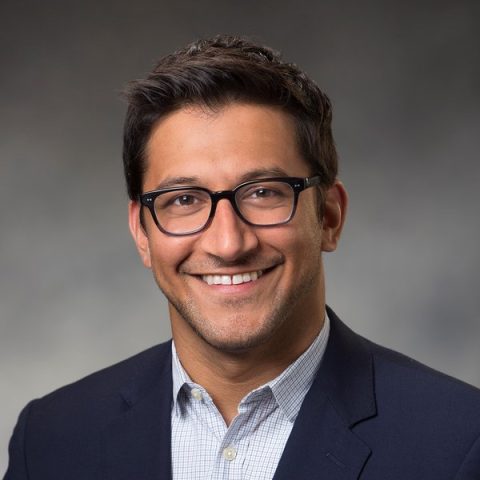
In the words of McKnight Senior Program Officer Marcq Sung, who stewards our Build Community Wealth strategy within the Vibrant & Equitable Communities program, “Sumair’s enthusiasm on the possibilities of proactive change is infectious and inspiring. The same intense curiosity and optimism that drove his success in the classroom and the community has translated wonderfully into the economic development work where authentic inquiry has helped to bridge communities, spark ideas, and drive a coalition of partners toward a common goal for a better Duluth.”
In this Q&A, we dive into what inspires Sumair’s commitment to supporting community and what brings him hope for the future.
“Sumair’s enthusiasm on the possibilities of proactive change is infectious and inspiring. The same intense curiosity and optimism that drove his success in the classroom and the community has translated wonderfully into the economic development work where authentic inquiry has helped to bridge communities, spark ideas, and drive a coalition of partners toward a common goal for a better Duluth.”
–MARCQ SUNG, SENIOR PROGRAM OFFICER, VIBRANT & EQUITABLE COMMUNITIES
The following interview has been edited for length and clarity.
McKnight: Tell us a bit about yourself and how you got where you are today. What motivators and experiences were formative in shaping you as a community leader and public servant?
Sumair Sheikh: I think I have to go back to my upbringing. Being raised in an immigrant family from South Asia, India, Pakistan, and living with one foot in one world and one foot in another. My family was really grounded in community, less individualistic and more community minded. I was a translator from very early on, literally and figuratively. Being part of a family unit that is community-oriented and helping the family for the good of the group were formative experiences.
I also liked the sciences a lot. I was a biology major in college, and thinking through that biological lens, I learned terms like ecosystem and connective tissue, which are applicable to our work. Those three things—upbringing, community orientation, and a scientific perspective—guided me towards work that fulfills me.
McKnight: What made you go from biology to your current role? How would you describe your role now, not just as an executive director, but in the ecosystem you live and work inside of?
Sumair Sheikh: I majored in biology with the intention of teaching. I was a biology and chemistry teacher at the high school level, predominantly working in K12. In the classroom, I saw students challenged by things outside of their control, like economic development and housing stability. My job wouldn’t have touched those issues, so I moved into roles connecting education systems to the community. I became a bridge builder, helping different systems interact and understand each other.
I ended up in various roles that involved internal and external bridge-making. I find it gratifying to see how different people or systems operate and translate that to partners. In community development, our work involves helping those affected by decision-makers have a voice and bringing that voice up to the decision-makers.
McKnight: Can you tell us a little bit about your job? What does LISC do?
Sumair Sheikh: Sure. We are a community development financial institution (CDFI), a national nonprofit intermediary focused on three main lines of business: lending, capacity building, and fund management. We aim to increase access to loan capital and grant capital while working directly with partners to build organizational capacity. This includes consulting on program design, organizational structure, and financial management.
Locally, we work within housing, income and wealth building, and economic development, and we are exploring green development to deploy funds targeted to reduce greenhouse gases.
McKnight: You were talking about bridging. We talk about bridging a lot at McKnight. How do you do that, and what does it make possible?
Sumair Sheikh: One example is working with a social worker in our community who was unhappy with the system and created a nonprofit to serve the Black community better. We funded an opportunity for her to attend the Creative Startups workshop, which inspired new programming within her organization. We then sought funds to create a space to support BIPOC entrepreneurship in Duluth, forming a group to analyze systems and advocate for resources. This led to programming within different organizations and the need for one to acquire a building. We are now working with them to close on a property, creating ownership and a responsive space that meets their clients’ needs. This example shows how bridging can take an idea from concept to a tangible, physical outcome.
We’re also aspiring to be more influential in bridge building for developers and increasing developer capacity. There’s a continuum of housing that is needed and a continuum of people that can build it. We’re helping by providing predevelopment grants or loans for newer developers who don’t have the balance sheet to pay for pre-construction needs before breaking ground. We’re also working with existing developers who might have larger balance sheets but haven’t worked on larger multifamily projects. We help them piece together resources and bring them capital they wouldn’t otherwise have access to. So that’s another bridge-building idea.
“I really like the idea of people having access to the resources they need when they need them. That’s my simple definition of equitable access.”–SUMAIR SHEIKH
McKnight: What kind of future are you dreaming of and working towards? Can you paint us a picture?
Sumair Sheikh: I really like the idea of people having access to the resources they need when they need them. That’s my simple definition of equitable access. Having housing options that fit and are sustainable, and options to move based on finding jobs that support different opportunities. Having integrated neighborhoods with mixed income options and thriving businesses that are easily accessible. When we talk about accessibility, I think of walkability and safety in denser parts of Duluth.
When we hear the word affordability, I see a continuum of affordability as a good thing, not just the lowest income levels. Not having concentrated areas of wealth or poverty is something I envision. I hope we’re getting better at pushing our partner organizations to take a more comprehensive role. True collaboration is messy but more fruitful.
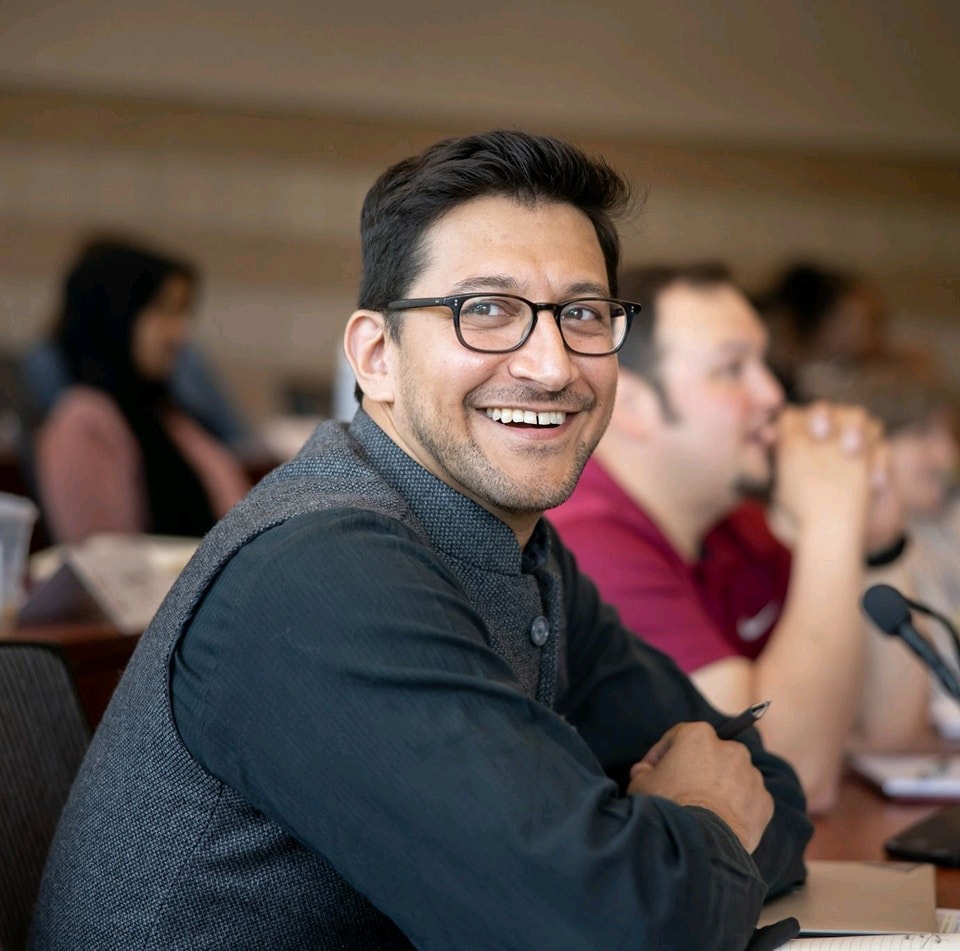
McKnight: What is giving you hope for the future?
Sumair Sheikh: I think what I’m noticing is more real conversations about the dynamic of power. There’s been more work done to allow people to have the words to talk about things they’ve been feeling, whether just or unjust. There’s more opportunity to learn from each other and discover ways to articulate what’s important.
I think there’s more awareness that people come from different backgrounds and don’t always speak the same language, even if they’re using the same words. There’s more stepping back before diving in, which gives me hope. There’s always a sense of urgency in our society, but now there’s more time spent uncovering and establishing a shared understanding in some circles.
I am starting to see more interconnectedness between rural and urban America, and more learning happening due to better communication methods and internet access. Various demographics are being represented at different levels within nonprofit, government, and private institutions. The more overlapping and integration we have, the better the outcomes will be, assuming systems allow for a diversity of thought. These things give me hope.
Professionally, I’m excited about taking our office into a different chapter. There are things possible through LISC and our community having affiliation with a national organization that will bring resources into our region in ways that hadn’t been done before. We can pull on different strings or levers to connect untapped resources.
Personally, there’s a leadership development piece. Different demographics are showing up and entering positions, especially up here. I’m excited to create spaces that allow us to develop together. There are a lot of organizations that have turned over leadership. The community probably thought about these organizations operating in one way, but now we’ve got new people in charge. There’s a reset and refresh happening in these individual organizations, and the leaders are trying to steer those ships in different ways, working to reduce the proximity to power for those most impacted by Minnesota’s economic disparities.
